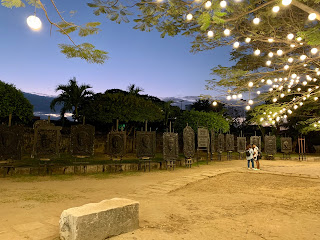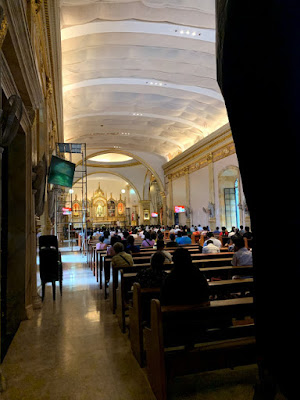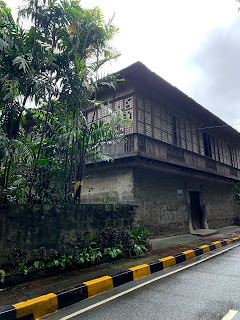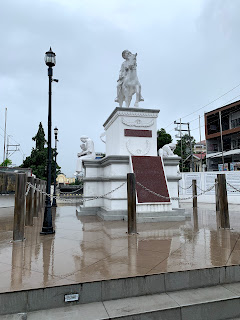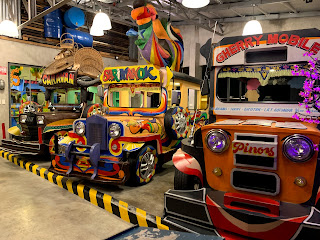Growing up, I am blessed to be surrounded with the rich history of Manila. Our first house was located in Tondo, just along the border of Tutuban Train Station, before it became a commercial centre. While in High School, we moved to Binondo, just a few meters from the church up until I started with my first job.
Career opportunities introduced me to the business district of Makati, Mandaluyong, up until my last job in Pasig.
As I took the 30 day tour guide training by the Department of Tourism, I welcomed the opportunity to explore Pasig in terms of history, culture and other experiential interests.
I approached the output of the fieldwork research to a full day itinerary that would showcase the city.
Overview
Pasig was the among the first town established after Manila by the Spanish Colonisers specifically the Augustinians in 1572. By 1901, it became part of the newly created province of Rizal and hosted the site of the Provincial Capitol up until 1975 where it was carved out of the province to join Metro Manila. On July 26, 1994, it officially became a city with the enactment of Republic Act 7829.
Pasig City occupies an area of 34.32 square kilometres, and has 30 Barangays and 2 Legislative districts. The 2015 census approximates 755,300 of population with a growth rate of 2.31%.
 |
| 1st District Councillor, Ferdinand Avis (Midde) Albert Villanueva (Right) |
 |
| Rosendo Benito (Middle) of Museo Ng Pasig |
Research Method
I was fortunate to be accommodated by the proud and hardworking Pasiguenos. They guided me on where to go, what to do and the must try!
Pasig Day Tour Itinerary
8:00 AM Sample Freshly Baked Goodies from Dimas-alang Bakery
Coming from Mandaluyong, going towards the direction of the Government Centre, you will pass by a charming bakery that is believed to be among the oldest establishments in the city. It is said that operations started in 1919 making the place 100 years old. The name of the Bakery is Dimas-alang and it comes highly recommended by Councilor Ferdinand Avis. Not only is the name historical in itself, being the tagalog translation of Jose Rizal's famous novel Noli me Tangere, it's the only place to try the baked goodies called Di Mo Akalain and Bonete. They also have the regular staples like the Pan de Sal and Ensaymada.
The bakery is owned by the Lozada's. An artistically gifted family of Pasig. The current active manager and owner is Manolo Lozada, a painter printmaker and singer and the only brother of famous violinist Carmencita Lozada. He took over in the 1980's when his mom Teresa passed away.
The bakery retains the traditional baking methods with the addition of very few modern equipment. It has kept the charming vintage charm of a neighbourhood store catering to generations of Pasiguenos.
9:00 AM Pasig Revolving Tower
 |
| Photo: CTTO |
This came as an interesting surprise. I did not know that such a structure exist in Pasig and that it has been in existence since 1974. I made this my first stop because it gives you a good aerial vantage view of the entire city especially with the addition of the 12th floor view deck and observatory as rehabilitated by former Mayor Bobby Eusebio in 2016.
Although not open to the general public, the place and the revolving floor is a popular events venue for the locals and coordinated visits are welcome.
9:30 AM Mutya ng Pasig Public Market
Pasig City claims to have the biggest public market in floor area with approximately 19,475 square meters. Its gaining popularity not only to the locals but also to neighbouring city residents as it has elevated the public market experience with efficiently laid out sections of stalls. The wet section in the ground level and the dry goods on the upper level with a weekend temporary stalls on the 3rd level. This was the intention of former Mayor Bobby Eusebio who's background in Architecture ensured proper planning for the building. Buying goods is made more convenient with the addition of a 4 storey parking building and its adjacency to transport terminals.
10:00 AM City Hall Complex
Connected to the Rest of public buildings by a network of covered elevated walkways, one can transfer from the public market to the City Hall Main Building. There was a time when the City Hall Building was considered the most modern of its kind, with libraries, galleries and lounges all created for the taxpaying citizens of the city.
Coming from the Public Market, one will not miss the Tanghalang Pasigueno that has become a favourite to National and International events, Pageants and Awards Night.
The elevated walkway continues to the Church and Old Plaza, but before continuing with the tour, a noodle stop as morning snack would come highly recommended.
10:30 AM Ado's Panciteria
Established in 1952 by the late Librado (Ado) Castillo, Ado's Panciteria is now considered a landmark and treasure of Pasig City.
What started as a Barber Shop eventually evolved into a Panciteria (Noodle Shop), with their own unique preparation. It is considered by many as the original Pansit (Noodles) with Chicharron. Now, you can choose the type of noodles, and the preparation. You may opt for the standard guisado (stir fry) or with a broth much like a noodle soup consistency.
It is best paired with bread or a stick or two of their barbecue.
11:00 AM Immaculate Concepcion Cathedral
According to the Pasig City website, the church was initially dedicated to the Visitation of the Blessed Virgin Mary in 1573 but the church was founded in 1572 making it the first Marian Parish in the country. The title of Immaculate Concepcion was conferred on April 25, 1587.
The present stone church was built in the 18th century and has undergone a few improvements in 2003 with the most recent reinforcement of the bell tower and addition of ceiling murals.
11:15 Museo Ng Pasig
Also known as the Concepcion Mansion, it used to be owned by Don Fortunato Cabrera Concepcion a former Mayor of the city from 1918 to 1921.
The style of the house is Neo Castillian, and was used by the Japanese as a headquarters and detention facility during world War 2. Its right on the balcony that the American Flag was raised signalling the liberation of Pasig.
11:30 Bahay Na Tisa
The Bahay na Tisa built in 1850 is believed to be the oldest house in Pasig. Its a typical Bahay na Bato with Capiz (translucent shells) Windows and Ventanillas on the upper level. The Tisa refers to the clay tiles that used to be the original roofing material of the house.
11:00 Pasig Heritage Houses
On the same street where the Bahay na Tisa is located are heritage houses reflecting the architecture of the period.
11:45 Plaza Rizal and Nagtagpuan Monument
The Plaza plays a significant role in history back in the days when the estuaries were still prominent. The early days of the Katipunan is attributed to this spot.
12:00 PM Lunch at Gerry's Jeepney
A Jeepney Themed Restaurant, where you can try eating boodle style. Boodle Fight is where all the food is placed on the centre to be shared by everyone. Traditionally done without utensils and traces its origin to the Army encouraging camaraderie and the value of sharing.
1:00 PM Relax at Ace Water Spa
Should you get tired, a perfect way to relax is a stop at Ace Water Spa and soak on their temperature regulated pool. One area is a complex of massage jets targeting specific body parts and another section is a scented heated pool.
7:00 PM Dinner at Cafe Juanita
Cafe Juanita, is an eclectic restaurant that serves traditional Filipino with a good mix of International dishes. Apart from the food, the interiors makes it unique with mix matched furniture and antique pieces collected by the owner.
9:00 PM Evening Cocktails at Vu's
If you're still up to it, the rooftop bar at Marco Polo offers an amazing panoramic view of the city. They also offer a Sinigang inspired drink which is worth trying. Just the perfect way to end the day!












